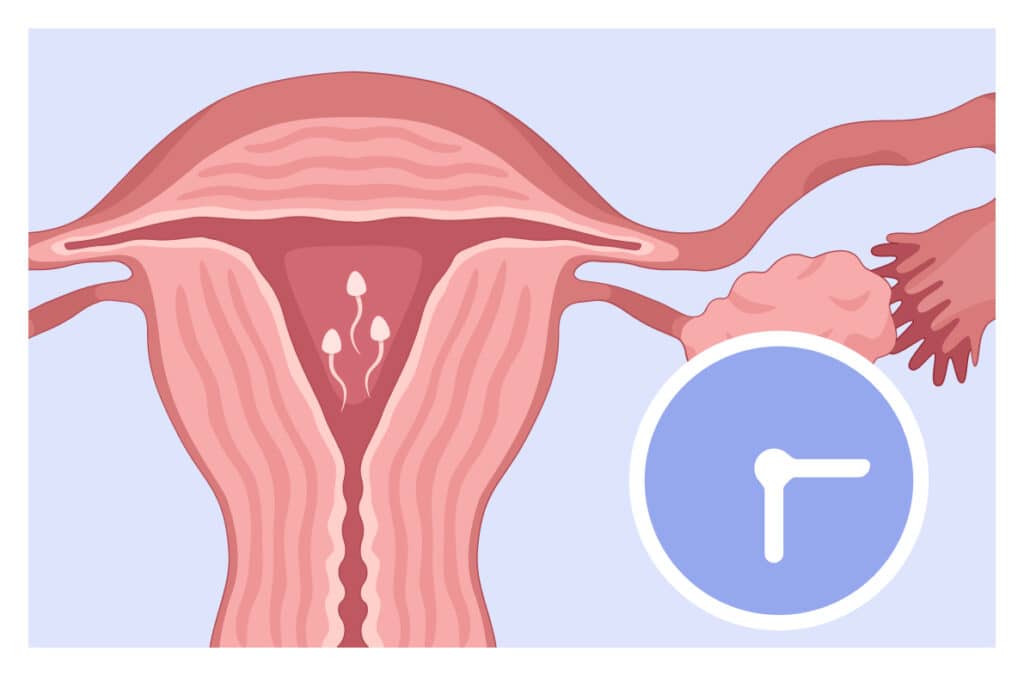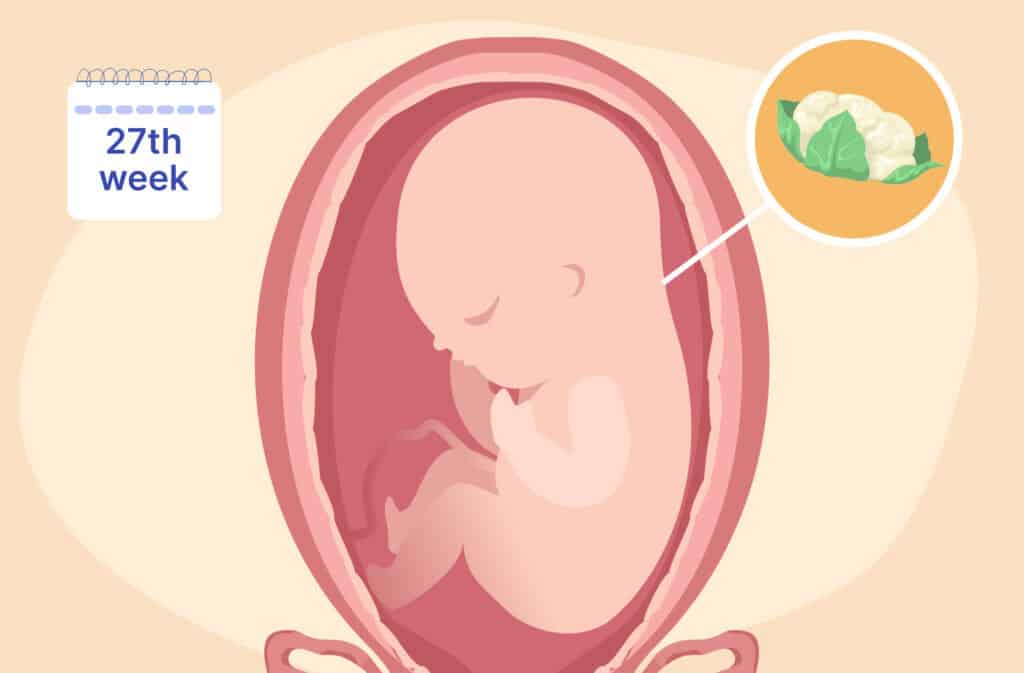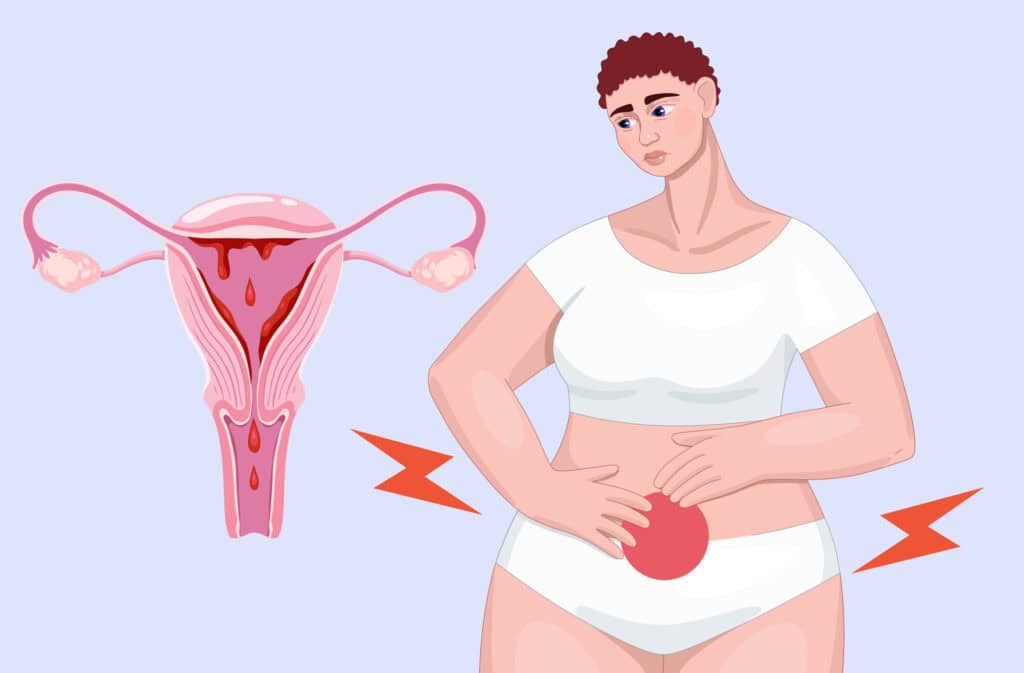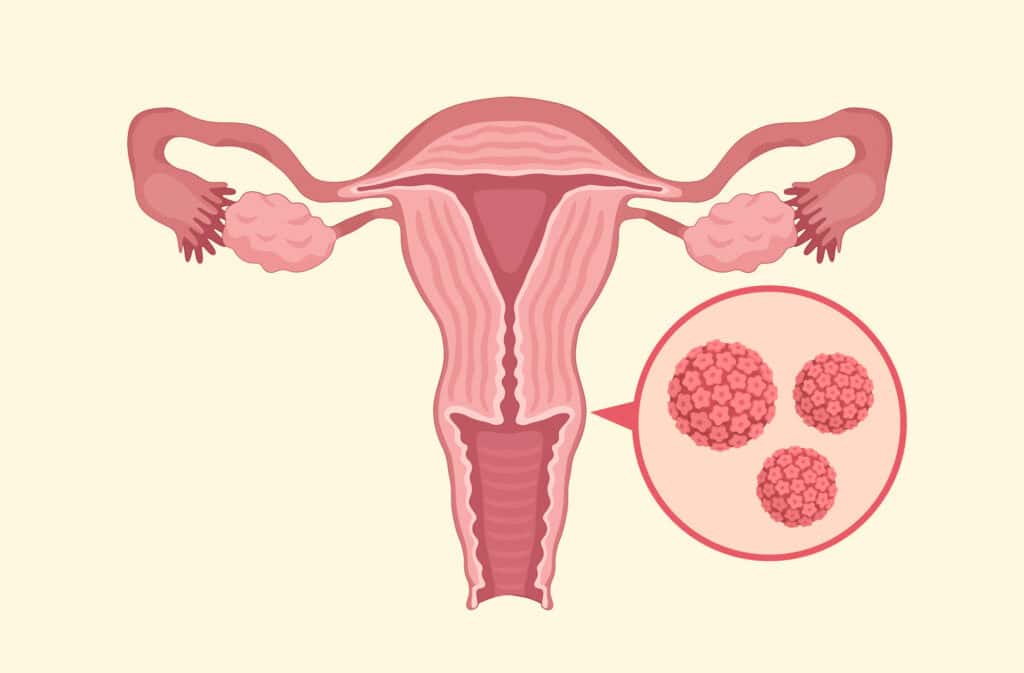Femia > Health Library > Getting Pregnant > Planning pregnancy > How long does sperm stay inside a woman? Facts about sperm survival and fertility
How long does sperm stay inside a woman? Facts about sperm survival and fertility

- Updated Feb 11, 2025
- Published
CRAFTED BY HUMAN
Crafted by human At Femia, we provide accurate and up-to-date information at every stage of your journey, from trying to conceive, pregnancy and postnatal support. All content is created by a real person based on in-depth research and own professional experience. Femia ensures that you will receive expert advice, strict accuracy and a personalized approach from our authors/medical experts. Learn more about our editorial policy.
FACT CHECKED
Fact checked At Femia Health, we maintain the highest standards of editorial excellence in delivering content focused on helping you conceive, guiding you through pregnancy, and supporting you postpartum. Explore our content review principles to learn how we ensure the accuracy and quality of our health and lifestyle tips for every stage of your journey.
- Sperm can survive for up to five days inside the female body under ideal conditions, though survival beyond this period is extremely rare.
- The slippery cervical mucus around ovulation provides a hospitable environment for sperm, significantly increasing their survival times and enhancing the chances of conception, whereas thick cervical mucus outside the fertile window reduces their mobility and lifespan.
- Male fertility can also impact survival times, with weaker sperm more likely to die sooner.
- Sperm can’t survive for long outside the body; air exposure can kill them.
Whether you’re trying to achieve or avoid pregnancy, understanding sperm survival is key to your success.
If you’re trying to conceive, you’ll want to know how long sperm can live inside you to get you pregnant. Understanding this will help you time sex to increase your chance of conception.
In this guide, we’ll answer questions like ‘How long does sperm stay inside a woman?” We’ll tell you what percent of sperm live 5 days inside you. We’ll cover the basics, including the factors that increase sperm survival and why sperm survival is vital for fertility. We’ll also explain ways to boost sperm health and improve fertility.
Femia offers the most accurate tool for determining fertile days
How long can sperm live inside the female body?
Generally, sperm can survive for up to five days in the female body under ideal conditions. You don’t have to have sex at the exact time of ovulation because sperm can wait inside the body for up to five days for an egg to be released.
Cervical mucus plays a vital role in sperm survival. The slippery cervical mucus of ovulation provides a nourishing and protective environment for sperm, helping sperm to survive longer. Tracking your cervical mucus using a cervical mucus chart can help you to effectively time sex to increase your chances of conceiving.
Though the ovulation phase of your cycle only lasts about a day, your fertile window can last up to a week. Your fertile window can begin as many as five days before ovulation because sperm can survive for up to five days inside your body while waiting for an egg to be released. However, most sperm won’t survive for that long. A 1975 study published in Fertility and Sterility analyzed the number of sperm in daily vaginal washings. It concluded that the small number of sperm that remain in the vagina after sex were inactivated.
What percent of sperm live for 5 days?
While we generally describe the fertile window as starting five days before ovulation, this isn’t an exact science. Most sperm will only remain viable for two to three days inside a woman’s body, meaning the chance of conception occurring five days after sex is low. Sperm quality, cervical mucus, and the pH balance in the vagina can all impact sperm survival times.
The data on sperm survival times is minimal, but a 1997 study published in Advanced Contraception found that only 5% of sperm survive for more than 4.4 days inside a woman’s body. For most sperm, survival times are likely closer to a couple of days. While 5% sounds like unlikely odds, it’s worth remembering that it takes only one sperm to fertilize the egg and achieve pregnancy.
The slippery cervical mucus around ovulation creates a hospitable environment for sperm, increasing their survival times and helping them travel to the egg. Sperm health also affects how long sperm can survive in a woman’s body. Weak sperm is most likely to be filtered out by the woman’s immune system before fertilization occurs.
Can sperm live for 7 days?
While rare, sperm can survive up to 7 days in exceptional conditions, such as optimal cervical mucus and a supportive vaginal environment. However, the majority of sperm do not survive beyond 5 days. According to the same 1997 study published in Advanced Contraception, while 5% of sperm can survive for 4.4 days, 1% will survive longer than 6.8 days. The odds aren’t high, but it can happen, so if you’re trying to avoid pregnancy, you should use protection in the week leading up to ovulation.
👉Find out more: Odds of getting pregnant by age chart: Fertility and pregnancy chances explained
Factors that influence sperm survival
How long sperm stays inside a woman’s body can be impacted by various factors, including:
Cervical mucus
The egg-white, slippery mucus of ovulation creates a sperm-friendly environment to ensure any passing sperm can survive as long as possible. However, the thick cervical mucus at non-fertile times of the month can have the opposite effect, creating conditions where sperm find it difficult to survive.
Sperm quality
Some sperm last longer than others. Low-quality sperm die sooner, thus reducing the potential fertile window for conception. Alternatively, strong sperm can survive longer, improving your chances of conception.
Vaginal pH levels
Your vagina’s hosting skills come into play here. An alkaline vaginal environment can help sperm to survive longer. An acidic vaginal pH can negatively impact sperm, reducing their survival times.
Femia offers the most accurate tool for determining fertile days
How long does sperm live in the uterus and fallopian tubes?
The answer to the question “How long does cum stay inside you?” is, once sperm enter the cervix, they make their way to the fallopian tubes. Scientists estimate that of the 100 million or so sperm ejaculated, only around 10,000 will make it as far as the fallopian tube. They can survive here for several days, waiting for an ovary to release an egg.
How long can sperm live inside you to get pregnant?
Sperm can wait, on average, a couple of days for ovulation to occur. However, they can survive for as many as five days if the conditions are right.
If you think you might be pregnant and are wondering when to take a pregnancy test, it’s best to wait until the day your period is due. Results are more accurate from the day of your missed period.
How long does sperm live outside the body?
Sperm need warm, moist conditions to live. Though sperm can survive for five days inside a woman’s body, they are unlikely to survive for long outside the body.
- Air exposure. Once exposed to air, sperm will die within minutes. Sperm doesn’t survive long on fabrics, skin, and other surfaces. Once semen dries up, sperm can no longer swim.
- Water exposure. Though wet environments such as hot tubs and baths provide the warm, moist conditions necessary for sperm survival, sperm are unlikely to survive long in water. Not only does the water temperature kill them, but hot tub chemicals will also prevent sperm from surviving. Even if the water temperature matched your body temperature, the water would play havoc with the sperm by making it disperse.
Why understanding sperm survival matters for fertility
You can boost your chances of conception by making sure you have sex during the right time of the month. Understanding your reproductive cycle allows you to predict when your fertile window will be. Your fertile window begins up to five days before ovulation and ends the day after ovulation. You need to have sex during your fertile window to get pregnant naturally.
Understanding that sperm health can impact the chance of conception may also encourage your partner to take steps to improve the health of their sperm.
How to improve sperm health
Low sperm production and low sperm morphology are causes of male infertility. Luckily, there are steps that can be taken to improve the production, quantity, and quality of sperm:
- Quit smoking and vaping. Smoking can negatively impact sperm health, so it’s vital to quit smoking when trying for a baby. Meanwhile, exposure to passive smoking during pregnancy can increase the risk of preterm birth, low birth weight, and Sudden Infant Death Syndrome (SIDS), so it’s better to stop smoking sooner rather than later. While you may see vaping as a lesser evil, a 2020 study published in Human Reproduction found that vaping significantly reduced sperm count.
- Reduce alcohol intake. Alcohol can also impact sperm quality. A 2014 study published in the British Medical Journal found that alcohol consumption negatively impacted semen quality. The biggest effects were seen in men who drank over 25 drinks per week, but even those who consumed five drinks weekly were affected.
👉Find out more: Enhancing fertility naturally: A guide to fertility supplements and foods
- Make healthy choices. As well as quitting smoking and reducing your alcohol intake, other healthy lifestyle choices can improve your fertility. Eating a nutritious diet, regular exercise, and taking steps to reduce stress can help to improve sperm production and boost your chances of conception. While some stress is unavoidable, how you react to daily stresses can affect your body. Try adding yoga, mindfulness practice, or meditation into your daily routine to reduce stress.
- Stay cool. Keeping your testes cool can aid healthy sperm production. Avoid wearing tight-fitting underwear, taking hot baths, and resting your hot laptop on your lap. Avoid overheating your testicles, which can impact your reproductive health.
- Antioxidants such as vitamin C, vitamin E, zinc, and selenium can reduce oxidative stress and improve sperm health. Maintaining a healthy weight through a balanced diet and regular exercise also positively influences sperm production and quality.
Questions from the Femia community
Can sperm survive in menstrual blood?
Sperm can survive inside your body even if you are menstruating. Though the menstrual blood may affect the pH in your vagina, it is still possible for sperm to survive during menstruation. An unusually short cycle could put you at risk of pregnancy even if you are on your period when you have unprotected sex.
How quickly does sperm enter the uterus after ejaculation?
Sperm can reach the uterus within minutes after ejaculation. During ovulation, your cervical mucus becomes slippery and stretchy, and this helps sperm to travel quickly through your reproductive system.
Does the female body kill weak sperm?
Yes, your body will filter out the weaker sperm and boost the chance of a strong sperm fertilizing the egg. To understand how long sperm can live in the female body, it’s essential to know how the female reproductive system impacts sperm. Cervical mucus and the immune system help to filter out weak sperm.
The bottom line
In ideal conditions, sperm can survive for up to five days in the female reproductive system. Ovulation provides the perfect conditions for increased survival times, including a nourishing cervical mucus and alkaline vaginal pH, because longer survival times increase the chance of conception.
The typical sperm, however, will last only a couple of days once ejaculated into a woman’s vagina. Knowing this can help you to time sex effectively to maximize your chance of getting pregnant. You should aim to have sex every two to three days throughout the month to increase your chances of hitting your fertile window. Tracking your cycles and cervical mucus can help you pinpoint your fertile window.
References
- Carlson, Bruce. Chapter 14 – The Reproductive System, Editor(s): Bruce M. Carlson, The Human Body, Academic Press, 2019, Pages 373-396, ISBN 9780128042540, https://doi.org/10.1016/B978-0-12-804254-0.00014-4.
- Eggert-Kruse W, Köhler A, Rohr G, Runnebaum B. The pH as an important determinant of sperm-mucus interaction. Fertil Steril. 1993 Mar;59(3):617-28. PMID: 8458467. https://pubmed.ncbi.nlm.nih.gov/8458467/.
- Ferreira-Poblete A. The probability of conception on different days of the cycle with respect to ovulation: an overview. Adv Contracept. 1997 Jun-Sep;13(2-3):83-95. doi: 10.1023/a:1006527232605. PMID: 9288325. https://pubmed.ncbi.nlm.nih.gov/9288325.
- Holmboe SA, Priskorn L, Jensen TK, Skakkebaek NE, Andersson AM, Jørgensen N. Use of e-cigarettes associated with lower sperm counts in a cross-sectional study of young men from the general population. Hum Reprod. 2020 Jul 1;35(7):1693-1701. doi: 10.1093/humrep/deaa089. PMID: 32558890. https://pubmed.ncbi.nlm.nih.gov/32558890/.
- Jensen TK, Gottschau M, Madsen JOB, et alHabitual alcohol consumption associated with reduced semen quality and changes in reproductive hormones; a cross-sectional study among 1221 young Danish menBMJ Open 2014;4:e005462. doi: 10.1136/bmjopen-2014-005462 https://bmjopen.bmj.com/content/4/9/e005462.
- Nassir M, Levi M, Wiser A, Shaked NT. Evaluation of women’s aging influence on sperm passage inside the fallopian tube using 3D dynamic mechanical modeling. Front Bioeng Biotechnol. 2024 Apr 12;12:1324802. doi: 10.3389/fbioe.2024.1324802. PMID: 38712332; PMCID: PMC11070836. https://pmc.ncbi.nlm.nih.gov/articles/PMC11070836/.
- Wallace-Haagens MJ, Duffy BJ Jr, Holtrop HR. Recovery of spermatozoa from human vaginal washings. Fertil Steril. 1975 Feb;26(2):175-9. PMID: 47815. https://pubmed.ncbi.nlm.nih.gov/47815/.

Discover what happens at 27 weeks pregnant, from baby’s development and size to belly changes and self-care tips for managing symptoms.

Learn the crucial differences between period vs miscarriage bleeding. Understand symptoms, timing, and how to distinguish early miscarriage vs period. Expert guidance from Femia.

Can HPV cause infertility? Discover the impact of HPV on fertility and pregnancy outcomes in detail and the measures to prevent HPV from the mother to the baby.

